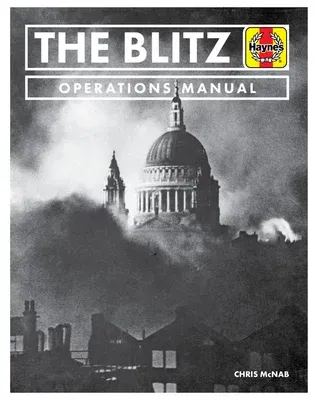Chris McNab
(Author)The Blitz Operations ManualHardcover, 18 February 2020

Qty
1
Turbo
Ships in 2 - 3 days
Only 5 left
Free Delivery
Cash on Delivery
15 Days
Free Returns
Secure Checkout

Part of Series
Operations Manual
Print Length
156 pages
Language
English
Publisher
Haynes Publishing UK
Date Published
18 Feb 2020
ISBN-10
1785216406
ISBN-13
9781785216404
Description
Product Details
Author:
Book Format:
Hardcover
Country of Origin:
US
Date Published:
18 February 2020
Dimensions:
27.43 x
21.59 x
1.52 cm
ISBN-10:
1785216406
ISBN-13:
9781785216404
Language:
English
Pages:
156
Publisher:
Series:
Weight:
725.75 gm